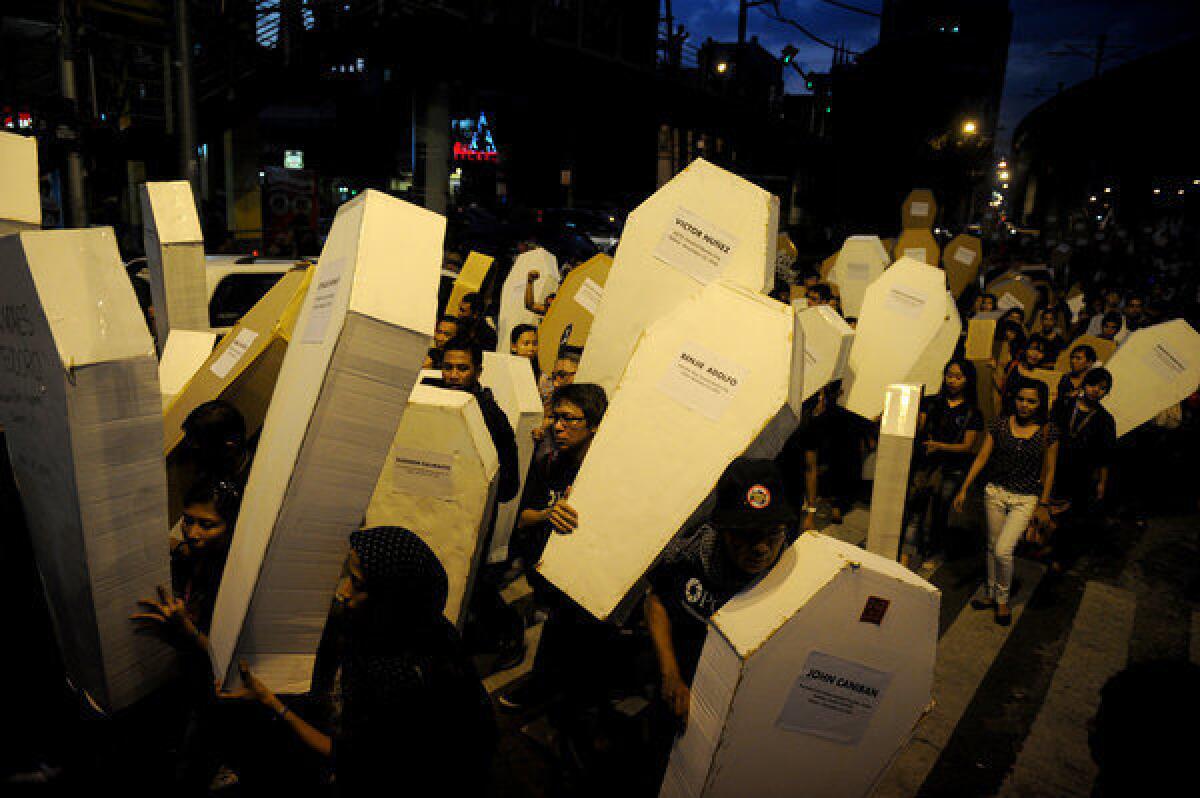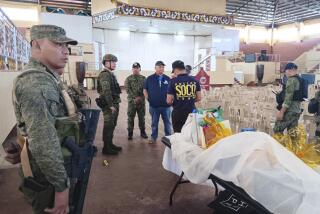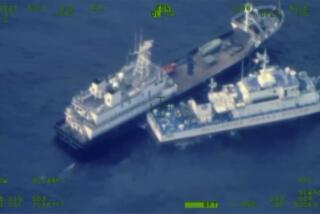Philippines protesters demand justice as massacre trials lag

Hoisting cardboard coffins and photos of the dead, protesters demanded justice Friday for scores of people gunned down three years ago in the Philippines, a politically charged case now stalled in its courts.
Former provincial Gov. Andal Ampatuan Sr. has been accused of masterminding the slayings of 57 people, who were en route to declare the candidacy of his political rival before they were killed and thrown into mass graves. He denies the charge. The massacre victims included 32 journalists who were covering the election, the deadliest attack on the media recorded by the Committee to Protect Journalists.
Almost half of the 196 suspects are still at large. Though Ampatuan and several others in his powerful political clan are in custody, the Philippine justice secretary laments that the defense has thrown up delaying tactics to slow the cases. Nobody has been convicted so far.
“We have time and again made our plea to the judiciary to expedite the process,” said Edwin Lacierda, spokesman for President Benigno Aquino III.
Key witnesses have been killed as the case lingers. Esmael Mangudadatu, the candidate and now governor whose allies and family members were slain, has survived a string of bomb attacks; he told the Philippine News Agency he was targeted again Friday by a roadside bomb that failed to detonate.
Some aggrieved families and activists charge that Aquino has failed to press a case he once called “a litmus test of our justice system.” Media watchdogs raise concerns about both his government and its opponents backing Ampatuan family members seeking office.
Beyond the lagging trial, “the larger problem is that the Aquino administration has done next to nothing to disband the rest of the country’s private armies,” said Brad Adams, Asia director for Human Rights Watch. Ampatuan had a private army that allegedly carried out the killings.
Aquino has argued in the past that private armies cannot be disbanded because government forces are stretched too thin. Though his government says some of the groups have been dismantled, it recently discovered scores more, raising fears that such forces could be mobilized to steer elections.
ALSO:
Suicide bomber kills 3, wounds 90, in Afghanistan attack
Middle East shifts may weaken Iran’s influence with Palestinians
Clashes erupt, offices ablaze after Egypt president expands power
More to Read
Start your day right
Sign up for Essential California for news, features and recommendations from the L.A. Times and beyond in your inbox six days a week.
You may occasionally receive promotional content from the Los Angeles Times.





